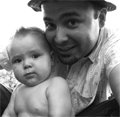Google Gives All SF Homeless Free Voicemail
KNTV-TV
updated 11:19 a.m. ET, Thurs., Feb. 28, 2008
SAN FRANCISCO, Calif. - Google has made an announcement that could help hundreds of homeless people in San Francisco get back on their feet.
Every single homeless person in the city will be given a life-long phone number and voicemail, should they choose to accept it, NBC11's Lisa Bernard said.
Google is partnering with San Francisco to provide the service to homeless individuals and to shelters and agencies so they can distribute the numbers to their clients.
The announcement was made at a Project Homeless Connect event at the Bill Graham Civic Auditorium Wednesday.
A homeless person will be able to call in for his or her messages from any phone.
The move by the city and the company would allow someone to be able to fill out a job application, which asks for a call back number.
It will allow clinics to share test results.
Mayor Gavin Newsom and Google said they want to empower people.
"How do you communicate as a homeless individual? " Newsom asked. "How do you expect your life to turn around if you can't even get information or if someone can't even get in touch with you?"
"It just seems exactly like any other voice mail," said Craig Walker, senior project manager of Google. "There's no stigma attached to it that 'hey this is a temporary thing' or 'this is an 800 number.' It's really just a local number owned by the user."
One man who used to be homeless said the right message can raise the spirit.
"Having your family, friends and loved ones being able to say 'here I'm thinking about you, I love you, I want you to know you're mine, and I miss you,' can have a monumental change in one's behavior."
"Providing phone and messaging capabilities and access to vital health care is an extraordinary step forward in the city's commitment to a comprehensive approach to addressing the needs of this vulnerable community," Newsom said.
"We're firm believers in the power of technology to improve the daily lives of individuals and communities as a whole, and we recognize that access to phone and voicemail services is one way that Google can help San Francisco's homeless stay connected with family, friends, social workers, health care providers, and potential employers," Walker said.
Walker said the program was ready to start right away.
***
Unfortunately, if the program works, they'll need cell phones to access those voicemail accounts.

AT&T announced this year that it will abandon its pay phone business, selling all of its 65,000 pay phones. It be only a small dent in the million-plus pay phone market, but admittedly, the industry is in obviously rapid decline.
Regardless, Google continues to give me hopeful willies with their pet projects. Some are a little outlandish, like using balloons to catapult their wifi program:
Jerry Knoblach wants to bring wireless service to millions of rural Americans. His plan: Beam it down from balloons hovering at the edge of space.
This isn't just hot air. His company, Space Data Corp., already launches 10 balloons a day across the Southern U.S., providing specialized telecom services to truckers and oil companies. His balloons soar 20 miles into the stratosphere, each carrying a shoebox-size payload of electronics that acts like a mini cellphone "tower" covering thousands of square miles below.
Cheap, disposable hydrogen-filled balloons carrying miniature versions of cellphone towers may soon provide service to rural, sparsely populated areas. WSJ's Amol Sharma visits Space Data, a company that makes the specialized balloons.
His idea has caught the eye of Google Inc., according to people familiar with the matter. The Internet giant -- which is now pushing into wireless services -- has considered contracting with Space Data or even buying the firm, according to one person...
***
Others will be all too helpful (see: life-saving):
Google Goes to the Doc's Office
The search giant's pilot program with the Cleveland Clinic is aimed at giving patients and doctors better access to electronic medical records
The U.S. health-care system is the most costly in the world. Yet it's also remarkably antiquated. The medical records of as many as 90% of patients are hidden away in old-fashioned filing cabinets in doctors' offices. Prescriptions are scribbled on paper. Most Americans need to fill out separate medical histories for each specialist they visit. "We are trained, like Pavlov's dogs, to repeat the same information 17 times," says Scott Wallace, chief executive officer of the National Alliance for Health Information Technology, a not-for-profit alliance of health care providers, information technology vendors, and health and technology associations. The result: mistakes, duplicated tests, botched diagnoses, and billions of dollars in unnecessary costs and lost productivity...
***
I wouldn't be dissapointed to receive a Google paycheck. Alas, it's been reported that Google receives over 20,000 resumes per week (1,000,000+ per year) and employee turnover is next to zero.
It's little wonder why there's so much interest.

